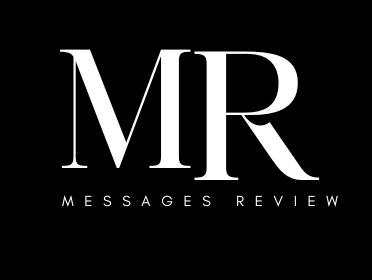Have you ever met someone who always chooses the lowest price, no matter what? That cheap mentality might seem smart at first, but it often leads to disappointment, poor quality, wasted time, and missed opportunities. It’s easy to mistake saving money for being wise, but sometimes, being too cheap can cost more in the long run.
In this post, we’ll explore what a cheap mentality really means and how it affects your mindset, relationships, and success. You’ll discover why focusing on value over price can completely change how you think, spend, and grow.
Quotes About People with a Cheap Mindset

People with a cheap mentality often see the world through the lens of scarcity. They think being careful means being clever, but in reality, it limits their growth. These quotes will help you recognize this mindset, whether in yourself or others, and remind you why true value always outshines cheap thinking.
A person trapped in this mindset spends energy on saving pennies but misses out on building wealth through trust, kindness, and character. The following reflections reveal how this mentality affects relationships, business, and personal success encouraging you to think bigger and invest in what truly matters.
1. “A cheap mindset costs more in lost respect than it ever saves in money.”
Respect can’t be purchased at a discount. Those who cling to the cheap often lose credibility and dignity, chasing small savings at the cost of their reputation. In life and business, value comes from integrity, not how little you spend.
2. “Broken promises and ‘discount’ effort – the currency of cheap people.”
A person with a low-cost mindset cuts corners even in their commitments. They promise more than they deliver, always looking for shortcuts. Over time, their words lose weight, and people stop trusting them because effort, like quality, should never be discounted.
3. “Cheap people see price tags, not value. That’s why they stay small.”
When someone is obsessed with saving money, they fail to see opportunities for real growth. The cheap traps people in survival mode instead of progress. They focus on what it costs instead of what it’s worth, never realizing that value creates success.
4. “If ‘saving money’ is your personality, don’t be shocked when nobody wants to invest in you.”
Being frugal is fine, but when it defines your identity, it becomes toxic. People don’t want to follow or trust someone who only thinks about cost. True leaders attract value through generosity, vision, and purpose not through penny-pinching habits.
5. “Cheapness isn’t about money. It’s a poverty mindset that keeps people stuck.”

The problem with a cheap one isn’t financial, it’s mental. This mindset stops people from taking risks, learning, or giving. It’s not about lacking money but lacking vision, confidence, and the courage to believe that abundance is possible.
6. “They’ll drive 20 miles to save $2 but wonder why their life isn’t going anywhere.”
Small-minded saving habits reflect deeper priorities. Time, energy, and peace are priceless, but those with a cheap mentality trade them for minor gains. Ironically, they work harder to stay broke because they don’t value what truly moves life forward.
7. “A cheap person’s favorite words: ‘Too expensive.’ Their biggest loss? Trust.”
People who constantly complain about prices end up losing more than money; they lose relationships and respect. When everything feels “too expensive,” even loyalty and honesty seem overpriced. A cheap mentality devalues trust, making life feel empty despite all the savings.
8. “Bargain-hunting in relationships just leaves you with low-quality connections.”
Trying to find “cheap deals” in relationships giving little but expecting much always backfires. Relationships, like investments, require genuine effort and time. Those with a cheap end up surrounded by shallow, transactional people instead of meaningful, lasting bonds.
9. “Cheap people count coins while winners build empires.”
Winners understand that small sacrifices lead to bigger rewards. People with a cheap mentality stay focused on pennies while visionaries build legacies. You can’t grow by counting coins; you grow by counting opportunities, taking smart risks, and believing in your worth.
10. “They’ll waste your time haggling over pennies but never repay the favor.”

A person obsessed with saving at every turn often undervalues time both theirs and yours. The cheap mentality makes them blind to fairness and gratitude. They’ll argue endlessly for small discounts but never recognize the true cost of disrespect.
11. “A cheap person’s biggest fear? Someone might ‘overcharge’ them… with basic decency.”
Some people fear generosity, assuming everyone’s out to take advantage of them. This defensive thinking stems from a cheap, where even kindness feels like a scam. Sadly, this fear isolates them, keeping love and trust out of reach.
12. “If you’re always looking for the cheapest way out, you’ll never find the best way up.”
Growth demands investment of time, energy, and courage. A cheap avoids these costs, settling for mediocrity instead. Those who only search for shortcuts miss the climb that leads to greatness. You can’t rise while constantly looking for the exit.
13. “Cheap people don’t lack money – they lack vision.”
The true poverty of a cheap mentality isn’t financial; it’s a lack of imagination. When people think too small, they stop dreaming big. Vision is the spark that turns ideas into success, while stinginess smothers that spark before it ever ignites.
14. “Cheap people spend their whole life saving money but waste the one thing that truly matters – time.”
You can earn back money, but not time. People trapped in a cheap market often lose years chasing small bargains instead of chasing purpose. In the end, they realize the real cost of their savings, missed chances, delayed dreams, and regret.
15. “Life gives receipts too – and cheap people always get the worst returns.”
Every choice we make is an investment, and life eventually delivers the receipt. Those with a cheap mentality often find their returns disappointing because they invested little in others, in growth, or in kindness. Life pays back what you put in.
Quotes That Show What Really Matters in Life

Sometimes people forget that true worth doesn’t come from cutting corners, it comes from valuing what actually matters. Having a cheap one can make you miss out on experiences, relationships, and lessons that money can’t buy. Value grows when you invest in quality, effort, and purpose.
This section reminds us that life’s richest lessons are never found in bargains. It’s not about being careless with money; it’s about recognizing the cost of always choosing the cheapest way out. True satisfaction lies in the balance between smart spending and meaningful choices.
1. “Don’t be cheap with your dreams, invest in them.”
A cheap limit of ambition. When you start doubting your worth, you begin underselling your potential. Dreams need time, patience, and courage to grow. People who fear investment often stay where they are, while believers rise beyond average limitations.
2. “The cheapest choice often costs the most later.”
Choosing the easy or cheapest route might feel wise at first, but regret always follows. A cheap mentality blinds you to long-term consequences. Sometimes, what seems expensive now saves you years of loss, stress, and wasted effort later on.
3. “Value what adds peace, not what saves pennies.”
When you develop a cheap you start valuing discounts over peace of mind. But true richness lies in emotional stability, security, and freedom from stress. Cheap doesn’t mean smart, it often means you’re buying temporary comfort instead of lasting peace.
4. “Being wise with money doesn’t mean being cheap.”
There’s a big difference between being smart and being stingy. A cheap mentality hides behind the mask of frugality, but wisdom recognizes quality. When you invest thoughtfully, you create abundance instead of scarcity in both finances and mindset.
5. “You can’t build a rich life with a poor mindset.”
Cheap keeps people trapped in limitation. The moment you stop fearing spending on growth education, relationships, or experiences you start expanding your life. True richness starts in the mind, not the wallet, and generosity fuels that growth.
Lessons About Growth and Self-Worth

Growth means learning that cheap doesn’t always equal wise. A cheap mentality often develops from fear, fear of losing money, time, or comfort. But when you stop focusing only on cost, you start recognizing value in growth, effort, and self-belief.
These lessons remind us that every wise investment starts with courage. When you let go of the cheap you open doors to learning, creativity, and better relationships. You grow not because things got easier but because you began valuing yourself more deeply.
6. “Cheap thinking limits expensive possibilities.”
A cheap mentality makes you believe success is out of reach. But the truth is, small minds fear loss while big minds think about value. The more you focus on worth instead of price, the more opportunities appear naturally.
7. “Invest in yourself first, returns will follow.”
People stuck in a cheap often think self-investment is wasteful. But growth requires nurturing your skills, mindset, and confidence. Every book you read, every class you take, and every challenge you face becomes priceless in your personal evolution.
8. “Stop expecting premium results with a discount mindset.”
Cheap mentality breeds disappointment. You can’t expect excellence when you invest the bare minimum, whether it’s in relationships, work, or personal growth. Quality effort brings quality outcomes; anything less creates frustration and regret.
9. “The mind that fears loss can never grow.”
The cheap comes from a scarcity mindset, believing there’s never enough. When you shift to gratitude and courage, everything changes. The moment you stop fearing expenses, you start creating abundance that money alone can’t buy.
10. “Your worth is measured by what you give, not what you keep.”
People with a cheap often hoard rather than share. But generosity multiplies blessings. When you give time, kindness, and effort freely, life rewards you in ways that no discount ever could.
Breaking the Cycle of a Cheap Mentality

Escaping a cheap isn’t about overspending, it’s about understanding worth. People who cling to cheap habits usually do so out of fear or insecurity. Recognizing that mindset is the first step toward freedom and abundance.
Once you stop defining everything by its price tag, you begin appreciating quality, growth, and meaning. This section focuses on how to consciously replace limiting thoughts with abundant ones, transforming your approach to money and life.
11. “Cheap habits build expensive regrets.”
Every time you choose shortcuts, you sacrifice long-term gains. The cheap encourages small savings but causes big disappointments later. Invest time, heart, and wisdom in decisions, you’ll never regret choosing quality over quickness.
12. “Don’t let fear of spending stop your progress.”
The cheap feeds on fear of failure or not having enough. But life rewards bravery. When you invest in your growth instead of avoiding risk, you shift from surviving to thriving, discovering how capable you truly are.
13. “You attract what you value.”
Cheap mentality draws cheap experiences. When you demand more from life and respect your own worth, everything around you rises to match your expectations. The more you appreciate quality, the more you attract it.
14. “A cheap life is a choice, not a condition.”
Cheap isn’t permanent, it’s a mindset that can change. The moment you decide to value effort, passion, and purpose over shortcuts, you transform your destiny. Choose value, and life will mirror your new standard.
15. “Your mindset determines your wealth, not your wallet.”
You can have plenty of money and still have a cheap one if you fear losing it. Real wealth comes from freedom, generosity, and peace of mind. When you master your mindset, money becomes a tool not a trap.
How Cheap Mentality Affects Relationships and Trust

A cheap doesn’t just damage finances, it damages hearts. When someone constantly looks for the cheapest way to love, connect, or help, relationships lose depth. True trust can’t grow when everything is seen as a transaction instead of a meaningful investment in care and time.
When you operate from a cheap, affection feels conditional and shallow. Real relationships thrive on generosity of effort, emotion, and patience. When you stop counting every little cost, you open space for love that’s sincere, lasting, and fulfilling beyond material value.
16. “Love can’t grow in a heart that counts every cost.”
Cheap kills emotional generosity. Relationships aren’t meant to be scored or measured; they’re built on giving without fear of loss. When you invest time and care freely, love deepens naturally and that’s something no discount can buy.
17. “Stop budgeting emotions like money.”
Those trapped in a cheap mentality often withhold kindness, thinking it protects them. But affection doesn’t run out, it multiplies when shared. When you stop measuring emotional effort, you create relationships full of trust, warmth, and understanding.
The Difference Between Smart Spending and Cheap Mentality

There’s a major difference between financial wisdom and a cheap. Smart spending involves choosing quality, purpose, and sustainability. Cheap thinking, on the other hand, focuses only on immediate savings, often ignoring future consequences that end up costing more emotionally and financially.
Recognizing this difference helps you make mindful decisions. Smart spenders invest where value grows, not where cost disappears. When you embrace wisdom instead of fear, every purchase, effort, or experience becomes a reflection of respect for your future self.
18. “Smart choices protect you, cheap ones limit you.”
Cheap leads to short-term satisfaction and long-term struggle. People who think wisely understand that paying more for durability, peace, or purpose saves pain later. Cheap decisions might look smart at first, but they often become expensive mistakes in disguise.
19. “Saving smart isn’t the same as living small.”
Cheap mentality tells you to shrink your dreams, but smart saving teaches you to plan for them. When you spend with intention, you balance comfort and growth, creating a life that’s both secure and full of possibility.
Breaking the Fear Behind a Cheap Mentality

A cheap often hides behind fear, fear of running out, fear of failure, fear of not being enough. This fear shapes decisions, convincing people to settle for less. Breaking it requires courage, trust, and belief in abundance instead of scarcity.
When you face those fears, you begin to see how self-worth connects to spending habits. You realize that fear doesn’t protect you, it limits you. When you replace fear with faith, every choice becomes an opportunity for growth, confidence, and inner peace.
20. “Scarcity starts in the mind, not the wallet.”
Cheap isn’t about income; it’s about outlook. You can have little and still feel rich or have plenty and feel poor. Abundance begins when you stop fearing lack and start recognizing blessings already around you.
21. “Don’t let fear decide your worth.”
A cheap mentality grows from the belief that you must hold back to survive. But the truth is, holding back keeps you stuck. When you release fear and embrace faith, you make room for opportunities that fear once blocked.
Read More: Disappointment Quotes to Overcome Setbacks and Lift Your Spirits
How to Develop a Value-Driven Mindset

Escaping a cheap requires shifting focus from price to purpose. A value-driven mindset doesn’t chase discounts; it chases meaning. You begin to ask: “Will this make me grow?” instead of “How cheap is this?” That’s where real transformation begins.
When you value growth, integrity, and experiences, your life aligns with abundance. You start investing in skills, relationships, and opportunities that uplift your spirit. Developing this mindset means choosing quality of life over quantity of things.
22. “Invest where value multiplies, not where it fades.”
The cheap focuses on saving, not growing. But real value lies in choices that expand your mind and potential. When you place energy into what enriches you, you turn ordinary experiences into powerful investments in your future.
23. “Quality is never expensive when it lasts.”
Cheap mentality mistakes low price for good value. But quality, even when costly, repays you over time. It stays dependable, saves effort, and adds pride. Once you learn this truth, you’ll never chase cheap satisfaction again.
Read More: Heart-Touching Valentine’s Day Quotes for Every Kind of Love
How to Spot a Cheap Mentality in Daily Life

The cheap often shows up quietly, in excuses, comparisons, and avoidance. It might look like choosing low-quality items, rejecting opportunities, or undervaluing others’ time. Recognizing these patterns is the first step to breaking free.
Once you identify these habits, you can begin changing them. Awareness helps you make stronger, wiser choices. You start noticing when you’re operating from fear instead of intention and begin replacing that pattern with confidence and gratitude.
24. “Excuses are the language of a cheap mindset.”
Cheap finds reasons to avoid effort or spending. But growth starts when you silence excuses and take action. Each time you challenge yourself, you prove that value is created, not found in discounts or shortcuts.
25. “If you always look for less, you’ll always get less.”
Cheap creates a cycle of limitation. When you expect minimal value, life delivers it. To change your outcomes, raise your expectations and start choosing better for yourself, emotionally, financially, and spiritually.
Read More: Keep It Merry and Bright: Heartfelt Christmas Quotes for Every Moment
FAQs
What is a cheap mindset?
A cheap mindset means always choosing the lowest cost over real value. People with this mindset often fear losing money or resources, which stops them from enjoying quality, growth, and meaningful experiences in life.
How to deal with cheap mentality people?
Dealing with people who have a cheap mentality requires patience and boundaries. Lead by example show them that generosity, respect, and authenticity bring more fulfillment than saving a few pennies or avoiding effort.
What do you mean by cheap?
A cheap person values money more than people, time, or integrity. They often avoid investing in relationships or quality, focusing only on short-term savings instead of long-term happiness.
What is the psychology behind being cheap?
The psychology behind being cheap often comes from fear, fear of losing control, security, or stability. It’s a scarcity mindset that limits generosity and prevents emotional and financial growth.
What is a very cheap person called?
A very cheap person is often called stingy, miserly, or tight-fisted. These terms describe someone who avoids spending or sharing, even when generosity or quality would lead to better results and relationships.
Final Thought
In the end, breaking free from a cheap mentality isn’t about spending more, it’s about thinking bigger and valuing what truly matters. Life, business, and relationships grow when we focus on quality, integrity, and genuine effort rather than just saving a few coins.
Choosing value over price builds trust, success, and inner peace. When we stop cutting corners and start investing wisely, in people, goals, and ourselves, we create a life of abundance, not limitation. True wealth begins with a generous, growth-minded heart.

“Rana Ali Raza – Passionate about digital growth, SEO, and content creation. Helping brands shine online with smart strategies and creative ideas.”

